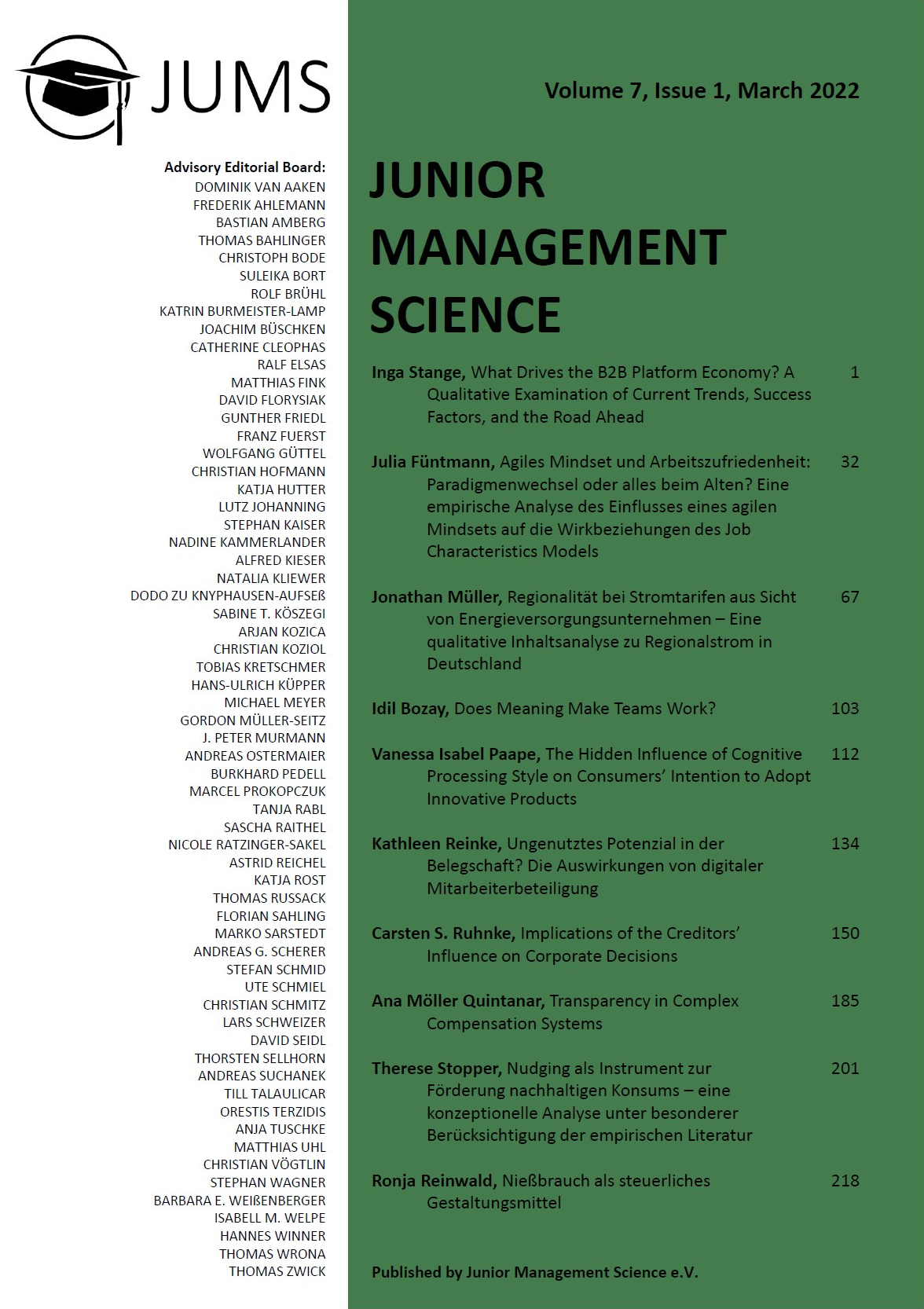Abstract
It is a central aim of Product Innovation Management to find the factors that influence consumers’ decision to adopt innovations. In this quantitative, empirical thesis, I illuminate a new, irrational side of consumers’ intention to adopt product innovations by drawing on Novelty Categorization Theory. I analyse the research question: Does the situational, dichotomous and cognitive factor processing style (global vs. local processing) (i) affect consumers’ intention to adopt innovations and does the effect (ii) vary depending on different levels of consumers’ personal predisposition to resist innovations? I recruit participants from the crowdsourcing platform Amazon Mechanical Turk (MTurk) and test the effects by means of multivariate, linear regression analysis. With this thesis I contribute to theory by altering the Innovation Decision Model and contribute to practice by uncovering a factor that can be utilized for the invention of new marketing instruments.
Keywords: Product innovation management; innovation resistance; local and global processing; consumer behavior; innovation decision model.

Dieses Werk steht unter der Lizenz Creative Commons Namensnennung 4.0 International.
Copyright (c) 2022 Junior Management Science e.V.

